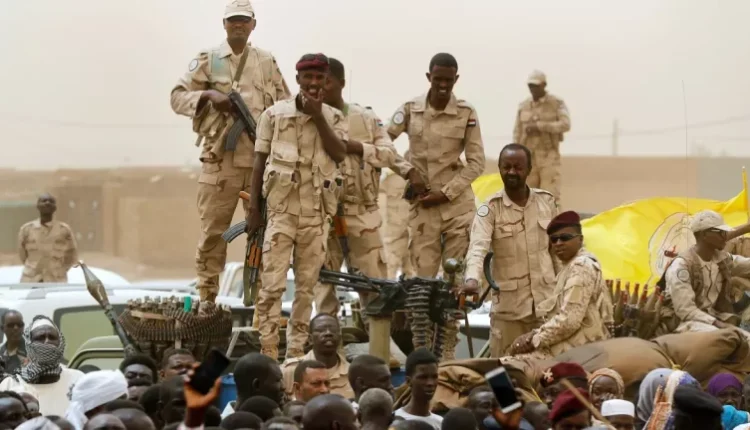Fracture in the RSF’s Tribal Backbone: Mahariya Withdrawal Shakes Western Supply Lines

Khartoum – Sudanhorizon
A deepening fracture is emerging within the tribal architecture that has long sustained Sudan’s Rapid Support Forces (RSF), as influential communities begin to withdraw from its ranks. Leading the break is the Mahariya clan (Awlad Mansour), historically one of the RSF’s most significant sources of workforce across western Sudan and into neighbouring Chad.
A War Without Horizon
Observers describe the development as a potential turning point in Sudan’s prolonged war, highlighting growing exhaustion among tribes that have suffered nearly two years of attrition without any strategic gain to justify the human cost.
Unofficial estimates suggest the Mahariya alone have lost thousands of young men—killed, injured, or left permanently disabled—prompting a wave of silent frustration and a reassessment of their continued involvement in a war many now see as aimless.
The RSF’s strength has never relied solely on weapons or foreign sponsorship; much of its resilience came from a far-reaching tribal recruitment network anchored in western Sudan and extending deep into Chad. This transnational pipeline has often been linked to smuggling routes for weapons, fuel, and mercenaries, with open allegations that the Chadian regime facilitated RSF-bound supplies through airports in Am Jaras and N’Djamena.
N’Djamena’s Dilemma
This tribal fissure now places Chad’s government in an increasingly precarious position. Its previously discreet support for the Sudanese rebellion is facing domestic pushback as Chadian tribes begin to question the blood price being paid for what many perceive as the private interests of a political-military elite.
Analysts suggest that tribal pressure could soon force N’Djamena to reconsider its position or, at the very least, restrict the flow of arms and fighters across the porous Sudan–Chad border.
On the ground, this shift is expected to disrupt the RSF’s longstanding ability to rapidly replenish its frontline fighters—long seen as one of its tactical advantages against the Sudanese Armed Forces (SAF) and allied local resistance groups. The potential collapse of this tribal support base could critically weaken the RSF’s human supply chain and threaten the sustainability of its urban warfare strategy.
A Window for the Sudanese Army
Some view the Mahariya’s retreat as an opportunity for the Sudanese Army and allied tribal forces to encourage further defections by appealing directly to other communities involved in the conflict. By urging the withdrawal of their sons from RSF ranks, they aim to undercut the recruitment mechanisms that feed what many now view as a foreign-driven project that sacrifices tribal youth for regional agendas.
In response, the RSF is likely to accelerate its efforts to reroute recruitment and supply operations through Libya, leveraging longstanding ties with factions in eastern Libya, particularly those linked to Khalifa Haftar. While the Libyan route offers some strategic allure, it presents logistical vulnerabilities, given international monitoring and the operational fragility of desert supply lines.
A Wider Collapse?
This tribal withdrawal could be the first in a domino effect of regional disengagement. If pressure builds within other communities straddling the Sudan–Chad border—particularly the Zaghawa and Mahariya—the RSF could face a wider tribal revolt. Such a shift would also likely pressure Chad to dial back its involvement to avoid domestic instability in its own tribal heartlands.
The strategic implications go far beyond battlefield logistics. With the erosion of its tribal base, the RSF loses not just manpower but also legitimacy and morale. Meanwhile, Sudan’s army gains leverage—both militarily and politically—positioning itself as the nucleus of a broader effort to restore state sovereignty and reclaim national cohesion.
What Comes Next?
The coming phase could see a rapid unravelling of cross-border alliances once held together by promises of influence and fleeting rewards. As war fatigue sets in, a new tribal consciousness may be emerging—one grounded in the painful recognition that war, once seen as a path to power, has become an engine of loss.
The central question now:
Can Sudan’s leadership capitalise on this fracture to decisively end the rebellion—or will regional players once again recalibrate and exploit the conflict for their own benefit?
Shortlink: https://sudanhorizon.com/?p=6249

